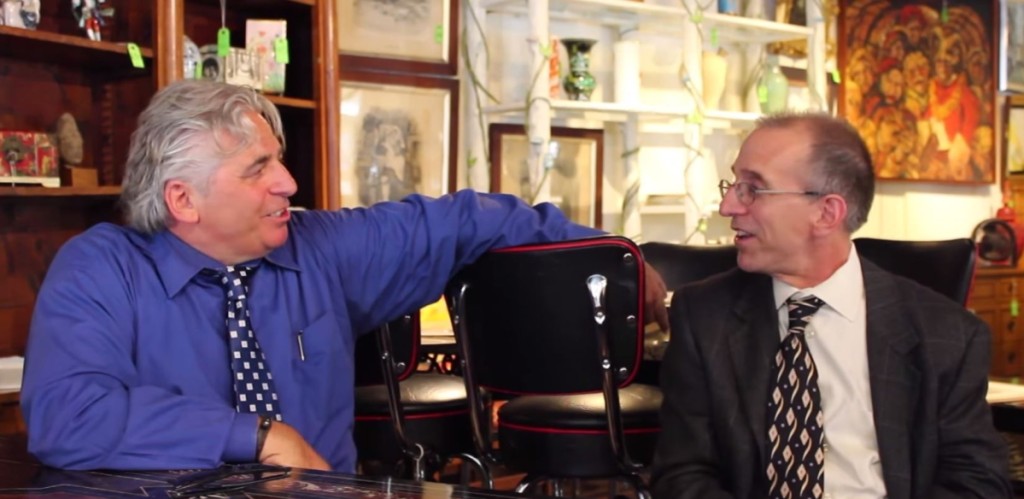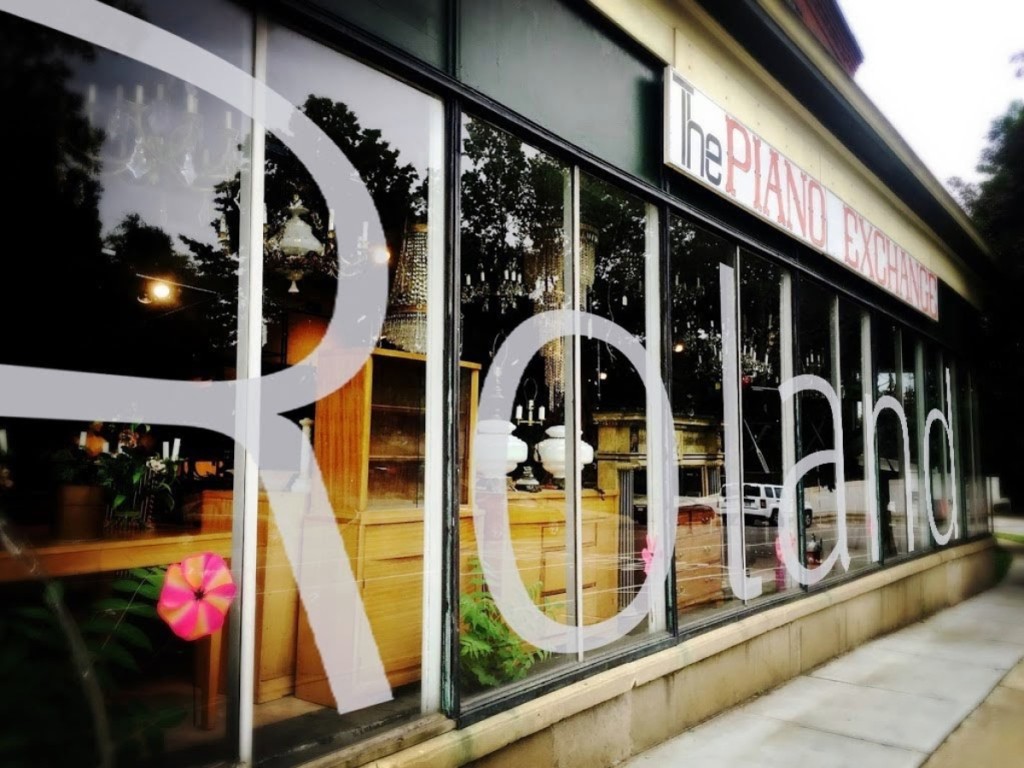
Brothers Billy Roland, left, and Robert Roland established their estate auction house Roland NY in 2010.
Brothers Billy and Robert Roland have been working together to sell antiques since the early 1970s. Always in the volume game, the dealers cut their teeth under others, with their own eponymous gallery and in partnerships with auction houses, sometimes sending as many as 20 container consignments for their sales. As they put it, they were “in the business before buyer’s premiums, when dealers would buy up a quarter of an entire auction.” That was all before 2010, when the brothers tacked up the sign for Roland NY in an area of Manhattan that they had done business in for close to 30 years. Fast forward eight years to today, the firm just moved to new digs in Glen Cove, Long Island, so we caught up with the duo to see how the move is treating them and to hear about the Manhattan market.
So, what prompted the move?
B: The building in Greenwich Village that our gallery was in had been sold and was slated for the wrecking ball. We lost a fabulous space, so we went and found another fabulous space. We were in that building since 1973.
It wasn’t a far move, but have you noticed any immediate changes between the locations?
B: Shock and awe. After spending a life in New York City and worrying about the rent, we really didn’t know what to expect other than it was more practical. A lot of people followed us out, and we got a whole new market, too. We were scared, but we’ve gotten more than we thought. It was a blessing in disguise.
R: I honestly think my eyes opened. There’s something about Manhattan that it’s beyond a business. That feeling and vibe of people coming in and out all the time. The busyness is probably what I will miss the most. I never thought the suburbs were appropriate for an auction business. With the internet, you can do the same thing in many other locations – not just in the heart of Manhattan. I wouldn’t have believed that until I drove out here. When we came here to look at the place, I said it’s a good opportunity. It’s the same business, and it’s no different than being in Manhattan. We get the same calls. And it’s a better feeling out here.
Is the material any different between the two locations?
R: In terms of walking into a house call, there’s a more traditional feel to what we’re seeing in these North Shore homes, but not with art. We still see contemporary art mixed with antiques. In the city, it’s the same thing.
Will you be changing your format at all?
B: I don’t think so. Of course, we would like to get more single owner sales. We just did very well with the Stern sale in September. Robert and I have been doing single owner sales since 1980. They’re a good way to promote someone’s property; we’re always looking for them. We feel that our family helps sell another family. They get all of us, and we’re good at it.
The Stern sale was notable. Can you tell me about that?
B: The Sterns had a story to tell of their own; they were collectors their whole lives. They knew Christo and Larry Rivers and were friendly with a number of artists. In the end, they liked our family, and we did well with the collection. The whole collection grossed over $600,000 in 30 artworks.
It’s a family business over there. How many family members do you have in the auction now?
B: There’s Rob and I, my sister-in-law, Linda; Robert’s daughter, Danielle; my wife, Beth; and my niece, Rachel. In extended family, we have Junior, who’s kept the machine working for 30 years. And Rob’s grandchildren are gearing up!
And what’s that dynamic like?
R: It’s a great experience with everybody. It has its moments of tension, but everyone seems to know their strengths; everyone overlaps each other. We try to maintain relationships, and a lot of it starts with family. We remind ourselves all the time that we need to keep the name growing and maintain it in a positive way. And our gallery manager, Junior, I don’t know where we’d be without him. Whatever changes we’ve gone through, he has always been there. He makes the place beautiful.
And your mother, Kathleen, was a fixture at the gallery, right?
B: She was there at every auction and exhibition with us until she passed away in June. She was a part of the whole thing right until the end. People loved seeing her. We had to fight to pay her money. She said, “I’m not here for that, I want to see you guys shine.”
So now that you’ve moved, what are some of your bigger challenges? What’s the plan going forward?
R: The hard part in the estate auction business is what to do with everything. In the end, you have to just accommodate what you can. You can’t just concentrate on the better things and leave them with a pile. Years ago, we bought estates and threw the bad stuff out. Today, you just can’t say that; you have to find a place for their things.
B: And to answer the second question, it’s to let Long Island know about our auction house and to invest in our clients long-term. The mission going forward is to do what we’ve always done: build relationships. I don’t think we’re doing much wrong; in fact, we’re doing a lot right. If I could start fresh tomorrow, the only thing I would do is exactly what we just did: take care of customers and dust the shelves off.
-Greg Smith





